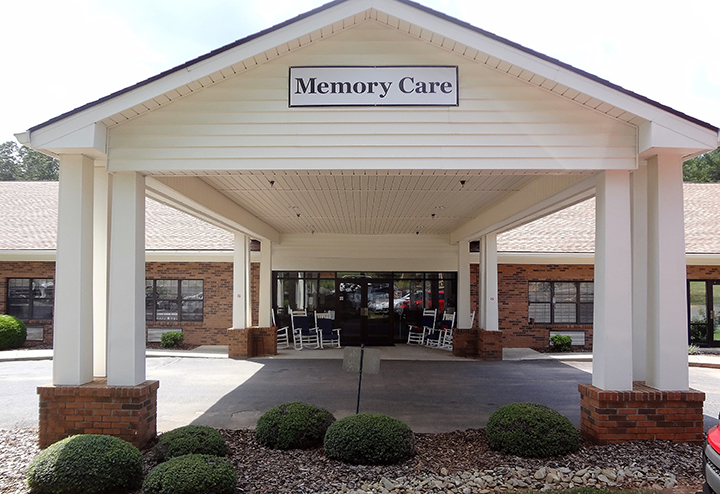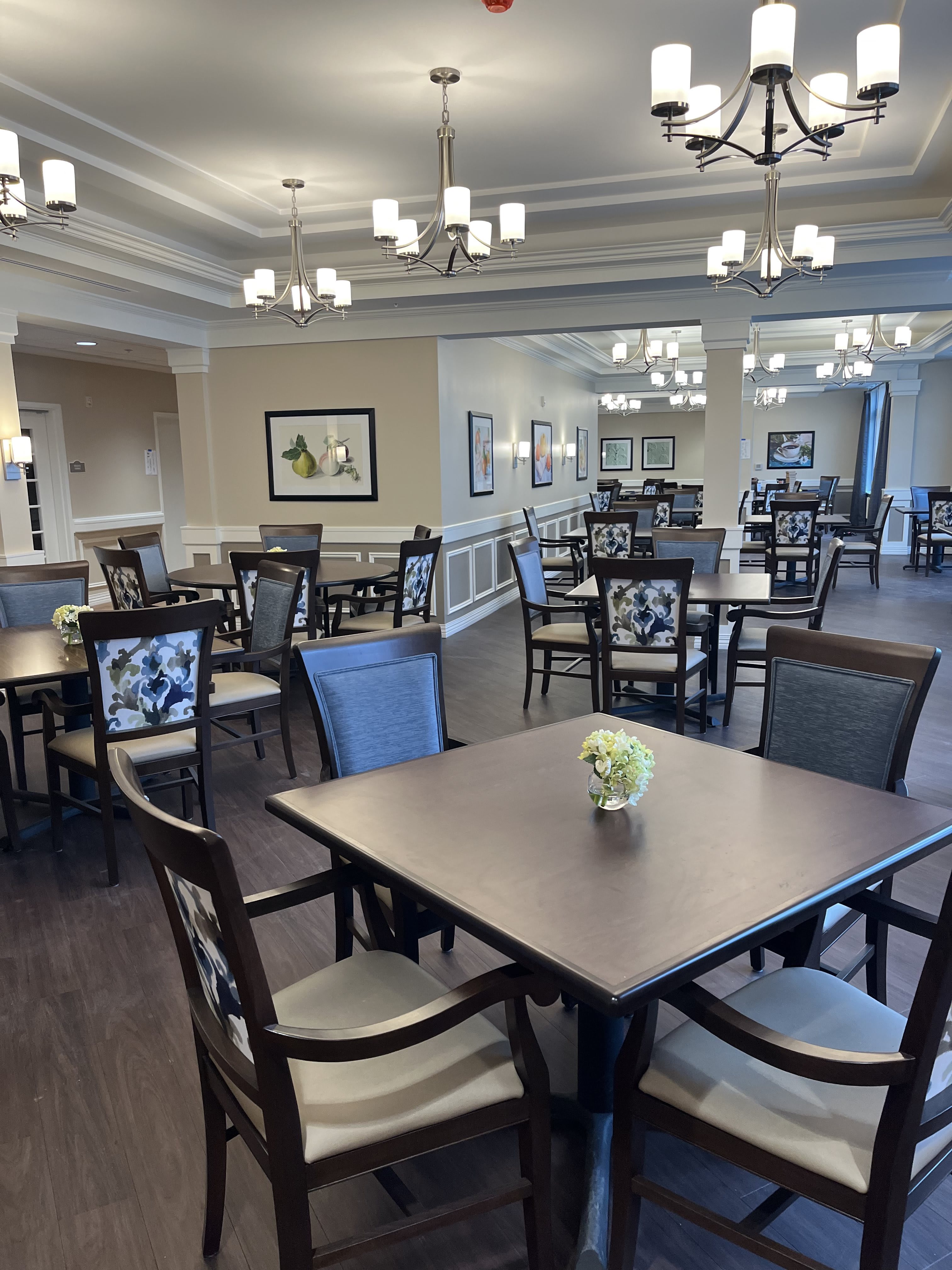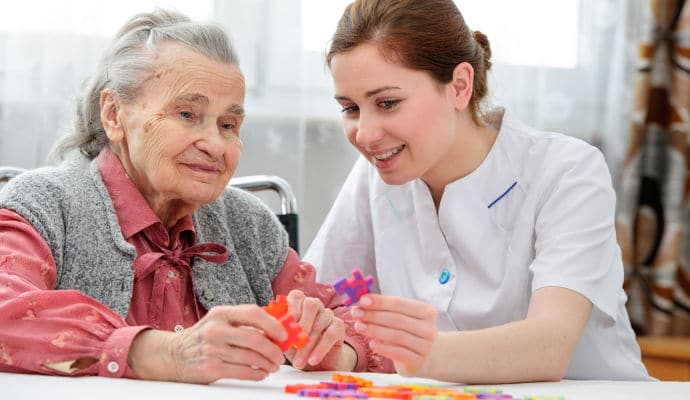Relied On Charlotte Memory Care: Expert Assistance for Your Liked Ones
Relied On Charlotte Memory Care: Expert Assistance for Your Liked Ones
Blog Article
What to Expect in Memory Treatment: An In-depth Overview to In-Home Services
As families come to terms with the challenges of caring for a person with memory loss, the world of in-home services offers a lifeline of assistance and specialized treatment. Understanding what to anticipate in memory treatment is crucial for making sure the well-being of both the individual with memory problems and their caretakers.
Daily Routines and tasks
Taking part in organized daily tasks and routines is a basic element of giving high quality take care of individuals in memory treatment centers. These activities are meticulously developed to provide to the specific needs of homeowners with cognitive disabilities, such as Alzheimer's condition or dementia. Daily routines play an essential role in preserving a feeling of familiarity, protection, and purpose for individuals in memory treatment.

Additionally, day-to-day regimens help individuals in memory care facilities to feel more oriented and less anxious. Uniformity in timetables and tasks can reduce confusion and agitation, offering a sense of stability and comfort. Caregivers and employee play a crucial role in helping with these activities, making sure that each resident gets customized and caring treatment tailored to their distinct preferences and abilities.
Specialized Care Provider
Within memory treatment centers, specialized care services are vital to deal with the distinct needs and challenges faced by people with cognitive problems such as Alzheimer's condition or mental deterioration. These solutions are developed to offer tailored assistance that deals with the certain demands of locals dealing with memory loss. Specialized treatment services in memory treatment centers commonly include personalized treatment plans, support with tasks of everyday living, medication monitoring, and behavior therapies aimed at improving top quality of life and lessening distress.
Furthermore, memory care centers usually provide organized programs and activities specifically made to promote cognitive function and advertise social engagement amongst locals. These tasks may consist of memory-enhancing exercises, sensory excitement therapies, and memory therapy sessions. In addition, specialized care services usually include normal tracking of homeowners' health and wellness and health by skilled personnel that are equipped to manage the unique obstacles connected with cognitive decrease.
Precaution and Setting
Executing rigorous security procedures and creating a protected setting are paramount concerns in memory treatment centers to guarantee the wellness and security of residents with cognitive problems. Safety in memory care starts with safe and secure building style, including locked doors and kept an eye on access to stop locals from straying outdoors unsupervised. Additionally, facilities commonly have alarm system systems and surveillance cameras to keep track of citizens and react swiftly to any kind of emergency situations. Inside, the setting is carefully planned to reduce dangers, with handrails, get bars, and non-slip flooring to stop falls. Furniture is organized to assist in easy navigating, and possibly harmful products are locked away or removed. Staff members receive specialized training in dealing with emergencies, de-escalating challenging actions, and making certain the safety and security of homeowners in all times. Normal security assessments are conducted to identify and resolve any type of possible hazards without delay. By focusing on security procedures and preserving a secure setting, memory treatment facilities purpose to give a encouraging and safety setup for individuals with cognitive problems.
Communication and Interaction Techniques
With an emphasis on promoting meaningful communications and improving quality of life, efficient communication approaches play an essential function in sustaining people in memory treatment centers. Communication in memory care includes understanding the special demands of citizens who may have cognitive problems like dementia.
Engagement techniques are also essential in memory treatment, helping citizens remain active, stimulated, and linked to their surroundings. Tasks like music treatment, art courses, memory sessions, and sensory excitement can trigger memories, boost mood, and advertise socialization. Customizing tasks per individual's passions and abilities is key to promoting interaction and a sense of success. Furthermore, integrating familiar objects, photographs, and music from the person's past can give find more information comfort and boost positive memories. By focusing on customized interaction and engagement techniques, memory care facilities can boost the overall health and high quality of life for their citizens.
Caregiver Assistance and Resources
Given the crucial role caregivers play in applying efficient communication and interaction techniques for homeowners in memory care centers, supplying adequate assistance and sources is necessary to ensure the wellness of both the caretakers and the individuals under their care. Caregivers in memory care setups typically deal with special obstacles that can influence their emotional and physical wellness. To deal with these challenges, various assistance systems and sources are available to aid caregivers in supplying the very discover here best feasible treatment.
One important form of support is caregiver education and learning and training programs. These programs gear up caretakers with the essential skills and knowledge to effectively take care of the behaviors and signs and symptoms connected with memory loss. In addition, support teams supply caregivers the chance to attach with others that are experiencing comparable obstacles, giving a sense of neighborhood and understanding.

Conclusion

Engaging in structured day-to-day activities and routines is a basic component of supplying top quality care for individuals in memory care centers.Within memory treatment centers, specialized care services are necessary to address the distinct demands and obstacles faced by people with cognitive disabilities such as Alzheimer's disease or mental deterioration. Specialized care services in memory care facilities commonly consist of personalized care plans, support with activities of everyday living, medicine monitoring, and behavior treatments intended at boosting top quality of life and decreasing distress.
Given the crucial function caretakers play in applying reliable interaction and involvement strategies for residents in memory care centers, providing adequate assistance and sources is crucial to ensure the health of both the caretakers and the people under their treatment. Daily activities, specialized care services, safety and security actions, communication methods, and caretaker support are essential components of in-home memory treatment.
Report this page